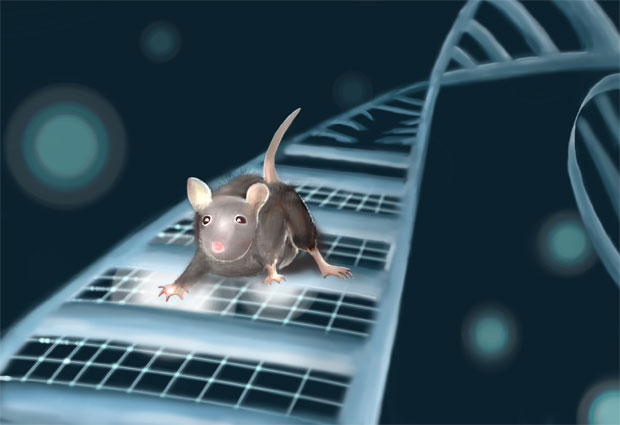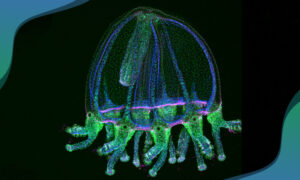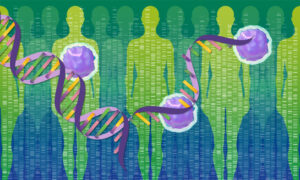
Molecular and behavioural effects of SETD5 mutation
Scientists uncover effects of mutation that can cause autism and intellectual disability

About 1% of patients diagnosed with autism spectrum disorder and intellectual disability have a mutation in a gene called SETD5. In a study led by Kyung-Min Noh, group leader at EMBL, and Gaia Novarino, Professor at IST Austria, scientists describe what happens on a molecular level when the gene is mutated in cell cultures and in mice, and how this changes the chromatin environment and the mice’s behaviour, respectively. This is an important step towards understanding how mutations in the SETD5 gene may cause cognitive changes in affected patients.
The team characterised what the SETD5 gene product does at the chromatin level and linked this to how gene expression changes when SETD5 is mutated. Chromatin is the tightly coiled structure of DNA and proteins which is used to store the genetic information inside the nucleus of a cell.
The researchers found that, in mouse embryonic stem cells, SETD5 is vital for controlling the timing of neuronal gene expression. In early development, SETD5 plays a role in the specification of tissues, and this is the reason why developmental defects are seen when SETD5 is mutated.
SETD5 mice were found to make strong, stable memories that are not easily overwritten. The researchers hypothesise that mice with the mutation create more stable memories that can make the brain inflexible, so that it’s harder for the mice to make new memories or adapt to new situations. The team also found that SETD5 cooperates with other chromatin-associated proteins that might play a role in gene regulation during learning and memory formation. When mutated, several of these genes expressing the SETD5 complex can also lead to intellectual disability and/or autism spectrum disorder in patients.
This is an edited and shortened version of the press release issued by IST Austria.


